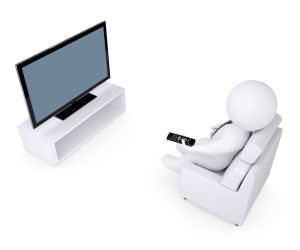- Physical Environment
Appropriate management of the physical environment is essential to reduce confusion, distress and agitation. If there is too much stimulation in the environment, the patient may find this overwhelming and be unable to manage the cognitive demands such an environment places upon them. The following measures may help support an appropriate environment:
- Maintain a calm, controlled, quiet setting. Reduce noise levels. However, playing familiar music may be calming and reassuring but should be played at a low level and switched off for care procedures, communication and sleep.

- Minimise the use of bright lights. Dim lights or shade the patient from them. Use blinds to reduce sunlight.
- T.V., tablets and mobile phones may be helpful to distract and entertain the patient if attentional abilities are adequate. However, many patients may find these overwhelming and difficult to cope with. T.V. etc should be switched off for care procedures, communication and sleep.
- If in a setting where the patient is in an open ward, a hospital bay or a room with large windows looking onto a corridor, it is beneficial to use screens or curtains to reduce stimulation. The patient should be in a quiet area of the ward away from the nursing station, telephones, passing visitors etc if possible.
- Reduce the number of people interacting with the patient at any one time, including the number of visitors.
- Provide photographs and familiar, comforting items to help the patient feel safe and relaxed. Be mindful not to overwhelm the patient by providing too many items. Photographs in an album may be preferable to a lot of pictures on the wall.
- Aim to maintain the patient’s dignity and privacy at all times.
Promoting Activity and Daily Routines
Encouraging the patient to be involved in basic activities of daily living and leisure activities, where possible, is helpful in promoting independence, decreasing agitation and improving mood.
- Try to implement a consistent and predictable daily routine.
- Encourage the person to independently carry out tasks they are able to do (e.g. washing, eating).
- Provide social/leisure opportunities at a level which does not overwhelm the patient.
- Provide the patient with some activities of interest in their environment e.g.
 photographs, music, T.V., simple games if able to participate.
photographs, music, T.V., simple games if able to participate. - Avoid demanding too much of the patient and overwhelming them.
- Fatigue, disrupted sleep pattern and other health issues may affect their ability to carry out activities consistently.
- If there is an accessible and safe outdoor space (e.g. garden), then it may be helpful to take the patient out for a walk to improve mood and quality of life. However, some patients in PTA may find the change of environment stress inducing and become overwhelmed. It may be difficult to encourage some patients to return to the ward.
- Reduce activity towards the end of the day to help promote sleep.